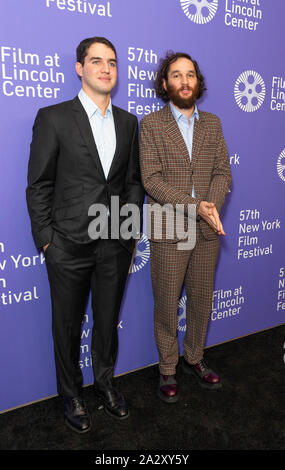


What begins as an Job-ian comedy of misplaced belief and apparently meaningless suffering molts into a more potent autocritique, cinematically asserting that the nearly universal prevailing direction of culture is the equivalent of the pathetic final squirmings of a greedy idiot. One could even begin to perceive this dissonance in the way Daniel Lopatin’s score, itself a dubiously transformative reworking of older forms, is quietly slotted in to the film in ways that run directly counter to its oversaturated synthesized mawkishness.
#JOSH SAFDIE UNCUT GEMS MOVIE#
Howie’s pure, untainted need for excess is what ends his life and the film (although his acquisitive spirit lives on in Julia (Julia Fox), to whose perspective the movie takes a late-stage shift), gesturing towards the aesthetic suicide that pastiche essentially represents when it takes on the dominant, maximalist shapes that it has tended towards in post-aughts Anglophone culture. His total, blind faith in the very acts of spending and making money, in and of themselves, is the engine generating Gems’s labyrinthine forward momentum, and he therefore becomes aligned with the film’s self-annihilatory conscience as the arc of narrative bends back towards inevitable collapse. One might call it the perfect antiparticle to Stranger Things in the cosmology of artistic nostalgia, a positively hateful treatment of its own formation, an anti-movie with none of the tedious handwringing ( a la Dogme 95) implied by the term.įrom this primordial soup of cultural flotsam emerges Howard Ratner, one of the most memorably devoted acolytes of capitalism put to screen in the past decade. Jewish faith, the highly recognizable patterns that our culture imagines for divorce, sports trivia, mob movie tropes, and The Weeknd are all swept up in the grasping, avaricious tendrils of the narrative engine, and reassembled into a grotesque, late-capitalist ooze. Uncut Gems is a repulsive movie, from its first gesture to its last, relishing in the violent and juvenile with gleeful disregard for the superficial import afforded it by the weight of borrowed tropes and signifiers. This is the overarching project of the film: to dismantle the predominating sociocultural forms of the decade. Such obsessive ethnographic documentation of a moment is typical of backwards-looking art, but here it is transformed into a scalpel for the dissection of said moment – historicist analysis being the first step towards dismantling.
#JOSH SAFDIE UNCUT GEMS SERIES#
However, rather than the empty rearrangement of signifiers in affectively novel but intellectually stale patterns, which is so often the fate of such retrograde projects, the omnivorousness of Uncut Gems suggests an (aesthetically) accelerationist critique of nostalgia’s codependence with capital.Īs Adam Sandler’s Howie lovingly recounts the historical significance of his prize opal (extracted, as all wealth and culture in the West is, through the labor and suffering of the Third World, which the Safdies clarify in the very first sequence of the film), so does the film trace its lineage through a series of temporally disjointed referents spanning decades, from the 80s textures evoked in the title screen and score to the fussily recreated, unmistakable milieu of 2012. It is in this cultural space, shared with the vaporwave that soundtracks it, that the Safdie brothers’ new film, Uncut Gems, operates. I don’t even know the real Jewish law on that, to be honest-it seems like they’ve relaxed quite a few of the rules about what’s kosher, so surely they’re not still as strict about the tattoo thing? (Don’t worry, Mom, I don’t have any!) But suffice it to say I habitually make jokes about Jewish cemeteries and tattoos not because I think they’re particularly topical or funny, but because they seem like the obligatory Jewish thing to say.Approaching the end of the decade, no shortage of critical ink has been spilled on the way the typifying aesthetic form of the 2010s was pastiche – or, perhaps more accurately, a form of pastiche which relates to its forebears in a mode situated halfway between reverence and parody. I think I’ve made variations of the same joke multiple times. Without getting too specific, I’ll just say it’s the scene when one character shows another character her new tattoo, but instead of complimenting it, the second character laments, jokingly but also not, that now she won’t be able to be buried in a Jewish cemetery. There’s a small moment in Uncut Gems that, though not nearly the best or most memorable part of the movie, I’m obsessed with. The Guy Who Filmed the Proud Boys on Jan. 6 Also Made Some Iconic Rap Videos Why the Internet Is So Obsessed With Lea Michele Replacing Beanie Feldstein in Funny Girl Herschel Walker’s Battle With His MAGA-Influencer Son, Explained A Chinese Immigrant’s Fearless Comedy Set Went Viral.


 0 kommentar(er)
0 kommentar(er)
